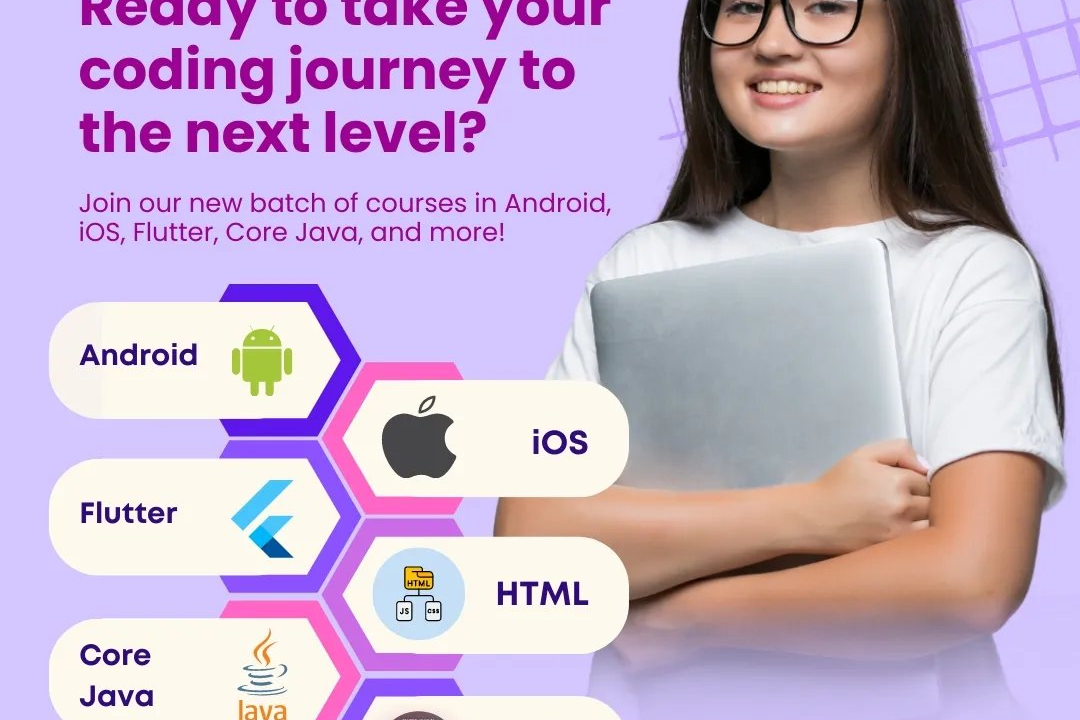Manual Testing Classes Online
Manual testing classes online are structured courses designed to teach participants the fundamentals
Manual Testing Classes Online
Manual testing classes online are essential for individuals looking to build a solid foundation in software quality assurance. These classes provide comprehensive training on the principles and methodologies of manual testing, enabling participants to understand how to effectively identify defects and ensure the functionality of software applications. With the industry increasingly relying on rigorous testing to deliver high-quality products, having expertise in manual testing is invaluable. Additionally, the convenience of online learning allows flexibility for students to manage their schedules while gaining hands-on experience through real-time projects, culminating in a recognized certification that enhances their employability in the tech sector.
To Download Our Brochure: https://www.justacademy.co/download-brochure-for-free
Message us for more information: +91 9987184296
Manual testing classes online are essential for individuals looking to build a solid foundation in software quality assurance. These classes provide comprehensive training on the principles and methodologies of manual testing, enabling participants to understand how to effectively identify defects and ensure the functionality of software applications. With the industry increasingly relying on rigorous testing to deliver high quality products, having expertise in manual testing is invaluable. Additionally, the convenience of online learning allows flexibility for students to manage their schedules while gaining hands on experience through real time projects, culminating in a recognized certification that enhances their employability in the tech sector.
Course Overview
The “Manual Testing Classes Online” course offered by JustAcademy provides a comprehensive exploration of software testing fundamentals, equipping learners with the essential skills to identify, document, and resolve defects in software applications. Participants will delve into various testing methodologies, including functional, regression, and user acceptance testing, while also engaging in real-time projects that simulate industry scenarios. Through interactive modules and expert guidance, students will develop a robust understanding of testing tools and techniques, culminating in a certification that validates their proficiency and readiness for careers in software quality assurance. The course is designed for flexibility, making it accessible for all learning schedules.
Course Description
The “Manual Testing Classes Online” course at JustAcademy is designed to provide participants with a thorough understanding of manual testing principles, techniques, and best practices. By engaging in interactive lessons and real-time projects, learners will acquire essential skills for identifying and documenting software defects, executing test cases, and ensuring software quality. The curriculum covers various testing types including functional, regression, and user acceptance testing, empowering students to effectively contribute to software development teams. With the flexibility of online learning, this course is ideal for aspiring QA professionals seeking to enhance their expertise and earn a recognized certification in manual testing.
Key Features
1 - Comprehensive Tool Coverage: Provides hands-on training with a range of industry-standard testing tools, including Selenium, JIRA, LoadRunner, and TestRail.
2) Practical Exercises: Features real-world exercises and case studies to apply tools in various testing scenarios.
3) Interactive Learning: Includes interactive sessions with industry experts for personalized feedback and guidance.
4) Detailed Tutorials: Offers extensive tutorials and documentation on tool functionalities and best practices.
5) Advanced Techniques: Covers both fundamental and advanced techniques for using testing tools effectively.
6) Data Visualization: Integrates tools for visualizing test metrics and results, enhancing data interpretation and decision-making.
7) Tool Integration: Teaches how to integrate testing tools into the software development lifecycle for streamlined workflows.
8) Project-Based Learning: Focuses on project-based learning to build practical skills and create a portfolio of completed tasks.
9) Career Support: Provides resources and support for applying learned skills to real-world job scenarios, including resume building and interview preparation.
10) Up-to-Date Content: Ensures that course materials reflect the latest industry standards and tool updates.
Benefits of taking our course
Functional Tools
1 - TestRail:
TestRail is a comprehensive test management tool that helps teams organize and manage their testing efforts effectively. In the Manual Testing Classes Online, students learn how to create test cases, track test progress, and generate reports using TestRail. The tool allows for collaboration among team members, ensuring that everyone has visibility into testing status and results. By utilizing TestRail, students gain hands on experience in managing testing projects from start to finish, fostering an understanding of best practices in documentation and reporting.
2) JIRA:
JIRA is a widely used issue tracking tool that is integral to project management in software development. In the course, students will work with JIRA to learn how to log bugs, track their status, and manage project workflows. The integration of JIRA with other tools enhances its functionality, and students gain insights into how to prioritize bugs and assign them to team members. This familiarity with JIRA prepares students for real world scenarios where they will need to collaborate with developers and stakeholders effectively.
3) Selenium IDE:
While primarily known for automation, Selenium IDE also provides valuable insight into manual testing processes. During the training program, students use Selenium IDE to record and play back user interactions, helping them understand the testing lifecycle. This tool allows students to practice and visualize manual testing techniques, as they can see how manual test cases can be translated into automated scripts, reinforcing the foundational concepts of manual testing.
4) Postman:
Postman is an essential tool for testing APIs, allowing students to validate that backend functionalities are performing as expected. In the Manual Testing Classes Online, learners explore how to create and manage API requests, as well as how to interpret responses. Understanding how to perform API testing enhances a tester’s skill set and broadens their capability to ensure that software is functioning correctly. This hands on experience builds confidence and ensures that students are ready for diverse testing challenges.
5) XML and JSON:
While not tools per se, XML and JSON are essential data formats that students in the manual testing course will frequently encounter. Learning about these formats helps students understand how data is structured in software applications, which is crucial for effective testing. The training will cover how to read and write XML and JSON, allowing students to validate data responses during testing processes. Mastery of these formats enhances a tester’s ability to perform accurate data validation and integration testing.
6) Excel and Google Sheets:
Excel and Google Sheets are powerful tools for managing test cases and data during the manual testing process. In the course, students learn to create testing matrices, document test cases, and track issues using these widely used spreadsheet applications. The ability to organize and analyze data effectively is invaluable for any manual tester, and students will practice generating reports and charts to present their findings clearly. This foundational knowledge ensures that students can manage testing documentation efficiently in their future careers.
Here are additional points highlighting important tools and concepts related to manual testing that students will encounter in the Manual Testing Classes Online at JustAcademy:
7) Bugzilla:
Bugzilla is an open source bug tracking system that enables teams to report, track, and manage bugs efficiently. In the manual testing course, students will learn how to create bug reports, prioritize issues, and track their resolution status using Bugzilla. This hands on experience is crucial for understanding the life cycle of a bug from identification to resolution, helping students develop their skills in effective communication and documentation within a testing team.
8) Test Case Design Techniques:
Students will explore various test case design techniques such as boundary value analysis, equivalence partitioning, and error guessing. Understanding these techniques allows testers to create efficient and effective test cases that maximize coverage and minimize redundancy. Practical exercises help students apply these techniques, reinforcing their ability to think critically about testing scenarios.
9) Requirements Analysis:
In manual testing, understanding the software requirements is paramount to developing effective test cases. The course will include sessions on requirement analysis, teaching students how to interpret and extract testable requirements from user stories and functional specifications. This foundational skill is vital for ensuring that testing aligns with the intended functionality of the software.
10) Exploratory Testing:
Exploratory testing is a crucial skill that encourages testers to explore the application without predefined test cases. In the course, students will learn how to identify areas of risk, formulate testing strategies on the fly, and document their findings. This hands on approach cultivates adaptability and creativity in problem solving, essential traits for successful testers.
11 - Mobile Testing:
As mobile applications continue to rise in popularity, understanding mobile testing becomes crucial. The course will introduce students to the unique challenges and considerations involved in testing mobile applications, such as device fragmentation, performance issues, and usability factors. By gaining experience in mobile testing, students position themselves as versatile testers in a rapidly evolving industry.
12) Collaboration Tools:
Efficient communication and collaboration among team members are vital for successful testing. The manual testing course will cover collaboration tools like Slack, Microsoft Teams, and Trello. Students will learn how to facilitate smooth communication streams, share findings, and coordinate testing efforts. This experience prepares them to work in diverse team environments, enhancing their overall effectiveness.
13) Documentation and Reporting:
Creating clear and comprehensive documentation is a key responsibility of manual testers. The course emphasizes the importance of maintaining up to date test plans, test case documentation, and test reports. Students will practice creating various documentation types to ensure that their findings are easily understood by stakeholders, fostering transparency and accountability.
14) Performance Testing Basics:
While primarily focused on manual testing, an introduction to performance testing will be included in the curriculum. Students will learn about basic performance testing concepts and tools, such as JMeter, which will provide them with an understanding of how to assess the responsiveness and stability of applications under load. This knowledge rounds out their skill set and prepares them for hybrid testing roles.
15) Soft Skills Development:
Effective manual testing requires not just technical skills but also soft skills such as analytical thinking, attention to detail, and effective communication. The course will incorporate elements aimed at enhancing students’ interpersonal skills and teamwork abilities, equipping them with the necessary soft skills to succeed in collaborative environments.
16) Real Time Projects:
As a core part of the curriculum, students will engage in real time projects that simulate real world testing scenarios. These projects will encompass the entire testing process, giving students an opportunity to apply their knowledge practically while working with case studies, allowing them to build a strong portfolio that showcases their skills to future employers.
These additional points will enhance the comprehensive nature of the manual testing program at JustAcademy, preparing students to become well rounded and effective testers in the software development landscape.
Browse our course links : https://www.justacademy.co/all-courses
To Join our FREE DEMO Session:
This information is sourced from JustAcademy
Contact Info:
Roshan Chaturvedi
Message us on Whatsapp:
Email id: info@justacademy.co
Powerbi Training In Koramangala
Best Code Visual Ide Design React Native
The Complete React Native Course Create Beautiful Apps Download












